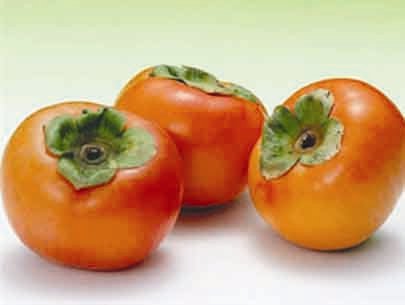
The persimmon fruit has high content of dietary fiber, which is much higher than many other fruits. It is also rich in carbohydrates, protein, antioxidants, vitamins A, B1, B2 and C, and essential minerals such as calcium, iron, magnesium, manganese, phosphorus and potassium.
 |
The persimmon is a sweet, delicious fruit that is beneficial to human health and beauty care
The persimmon fruit has high content of dietary fiber, which is much higher than many other fruits. It is also rich in carbohydrates, protein, antioxidants, vitamins A, B1, B2 and C, and essential minerals such as calcium, iron, magnesium, manganese, phosphorus and potassium.
The persimmon of those varieties grown in Vietnam also contains the tannins catechin and gallocatechin, which give the fruit an exclusively pungent taste. As the fruit ripens and sweetens, the tannins disappear. It also has the anti-tumor compounds betulinic acid and shibuol, which can help prevent certain cancer.
Persimmons can be eaten fresh, dried, raw or cooked. The flesh ranges from firm to soft, and the texture is unique. It is very sweet and possesses an apple-like crunch when firm. In Vietnam, the fruit is often used as a Mid-Autumn Festival offering.
The persimmon is good for the digestive system, thanks to the natural pectin in its flesh. The fruit is highly recommended for those on their diet, especially those who want to lose extra weights, because its sweetness can help overcome the hunger without too many calories.
The fruit contains sugars such as glucose and fructose, which can help boost the blood circulation and the heart muscle.
As the persimmon is rich in vitamin A, beta-carotene and the compounds betulinic acid and shibuol, regular intake of the fruit can help prevent the formation of tumors and certain cancer.
A study conducted in Japan showed that the peel of the persimmon contains phytochemicals, which may protect cells against oxidative damage associated with aging.
Studies also show that the persimmon is diuretic. Those with high blood pressure are advised to eat three to four persimmons a day as a natural drug to lower their blood pressure.
The tannins in persimmons can help facilitate the digestion and detoxify the body against alcoholic abuse. The fruit’s rich vitamin C can help protect the liver and boost its functioning. Intake of two persimmons after drinking alcoholic beverages can help avoid the risk of headache on the following day.
Given its abundant iron and vitamins A and C, the persimmon is considered very good for the blood, skin and hair.
In traditional Vietnamese medicine, raw persimmons are often used to treat constipation and hemorrhoids, and to stop bleeding. Meanwhile, the cooked fruit is used to treat diarrhea and dysentery. Dried persimmons (by means of peeling the fruits, drying them under the sunlight or in a furnace, and flattening the dried fruits) are used to treat diarrhea, hemorrhoids, lung infections and asthma.
Warning
Do not eat persimmons on an empty stomach, as the tannins and pectin may combine with other acids in the stomach to form gluey clots. Do not eat persimmons after having seafood, as it may cause stomachache or diarrhea. Over-consumption of the fruit may induce diarrhea. Those with diabetes should not eat the persimmon because of its high content of sugars. Brush your teeth after having persimmons to restrict the bad impact of tannins on your teeth.
(Source: SGT)




